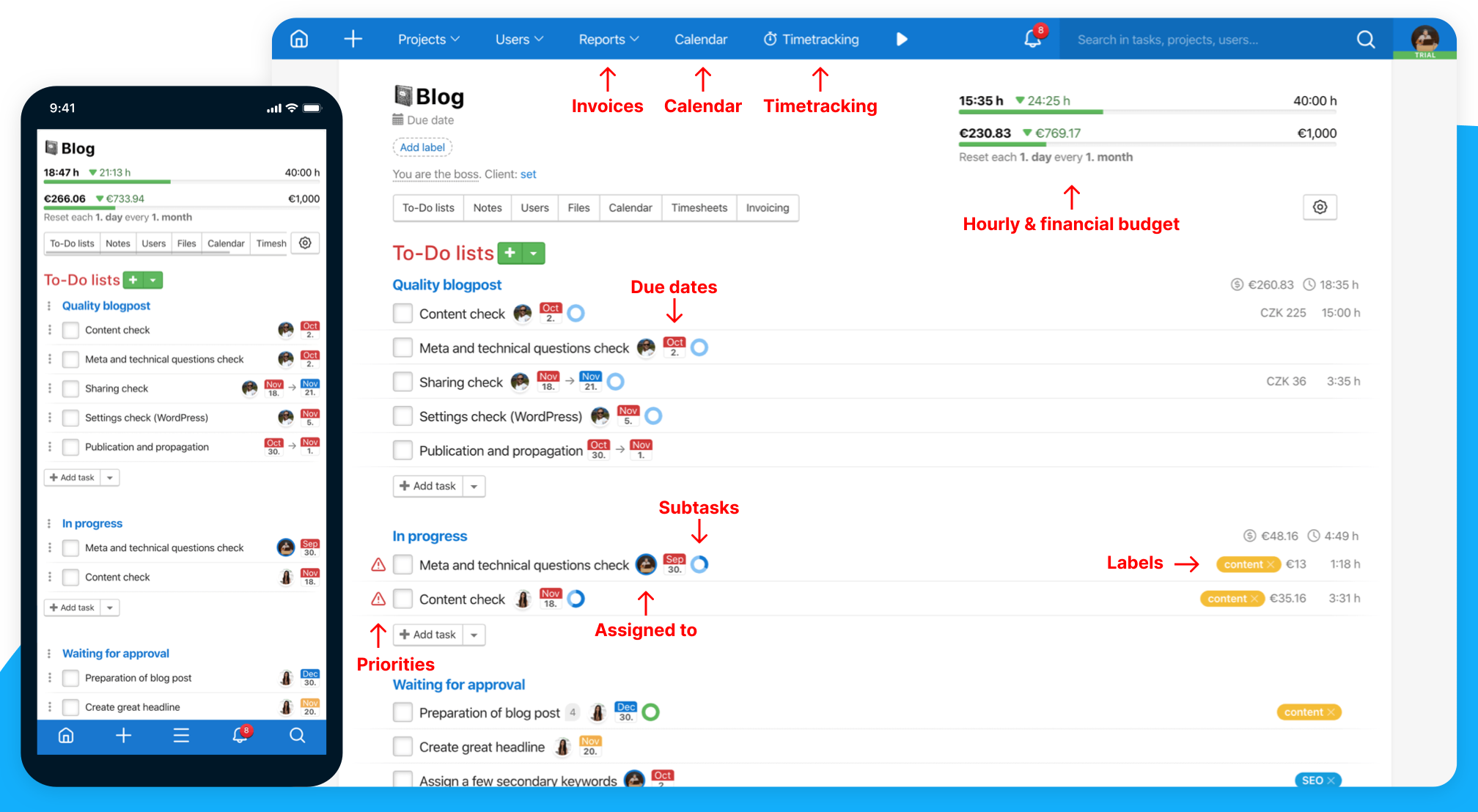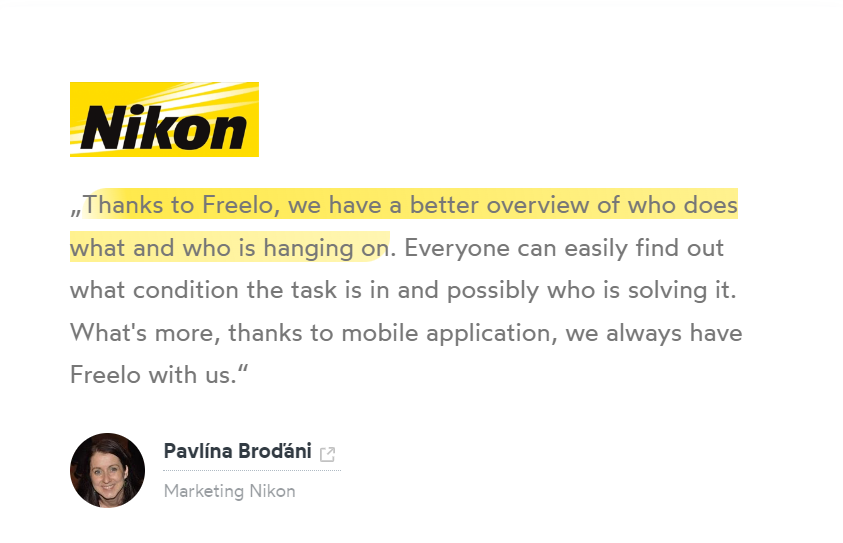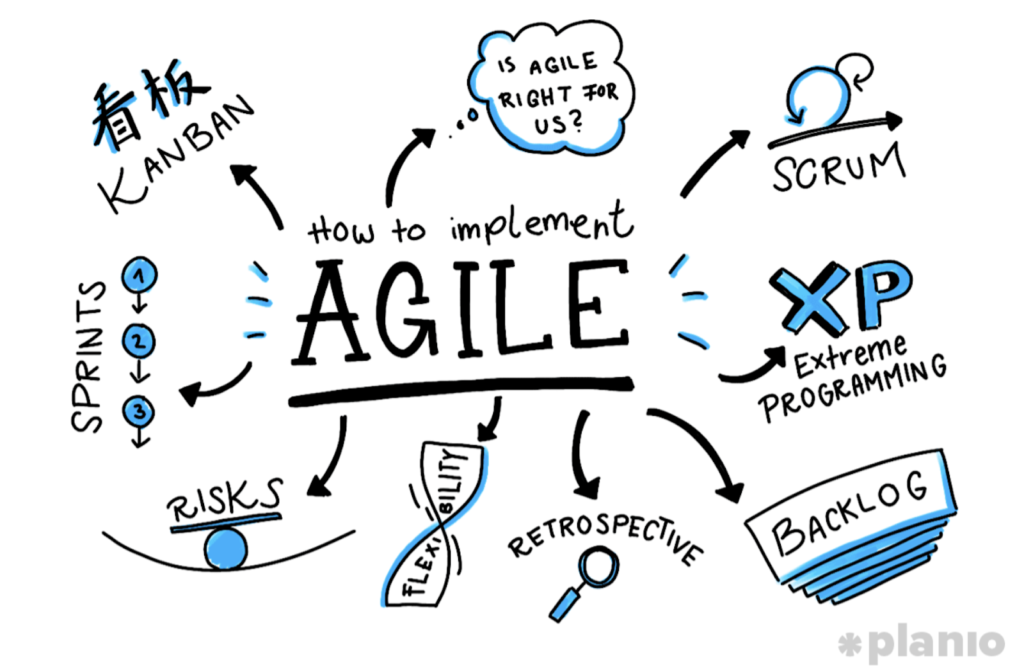
What Is Project Management and How It Can Help Increase Your Team’s Effectiveness
 Freelo team
Freelo team

Less than half of companies consider the implementation of project management important. All the while, the statistics speak clearly:
- 67% – On average, this is how many more projects fail for companies that undervalue project management.
- 11% – This is how many resources companies waste on unnecessary processes associated with poorly implemented project management.
- 37% – This is how many project failures are caused by poorly defined project goals.
But enough about the numbers – do you know how to ensure your project does not fall into these statistics? Take a moment to find out in our comprehensive guide to project management. Because a few minutes of reading is worth it compared to a failed project, right? 🙂
What Is Project Management?
Project management is essentially the planning of steps, which lead from the original idea to the final project evaluation. The goal of project management is to successfully execute a project. However, it does not just have to do with the well-known project management triangle, it is a set of various important actions in all phases of the project (from planning to implementing to taking measure of the project).

Let’s say that you have a great idea for a project and you want to go through with it. What next? To make everything work, you first need to:
- define the goal of the project (what you want to achieve and why – e.g., a new website design to generate more traffic),
- define the objective of the project (a measurable effect after the project is completed – e.g., 30% more website traffic within 6 months),
- identify the appropriate project management methods and techniques for your project,
- assemble a team led by a project manager,
- plan a project timeline (by when you want to achieve your goals – task deadlines, major milestones, and project completion),
- assign tasks (so everyone knows what to do and what they’re responsible for),
- create a budget (in the initiation phase by estimating, in the planning phase by calculating),
- plan communication within the team (meetings, through what medium, how often, etc.),
- determine the possible risks of the project (e.g., through a SWOT analysis).
Alright, but how do you do it practically? How do you get everything in order? How to set it all up and how to organize the steps? 👇
Why Implement Project Management Software in Your Company
Sure, it can be done in excel spreadsheets, emails, and flipcharts…

…but it is not really pragmatic. Project management software can ensure you systematize your work much more efficiently. With such a tool, you can assign tasks, communicate with all participants in the project (including freelancers), monitor the budget and deadlines, or even measure time spent on tasks and the entire project.
 An example of project management in Freelo.
An example of project management in Freelo.
The advantage being that you can keep track of things at all times and can effortlessly review whatever was being dealt with. You know exactly who is working on what, how long it took them, and what impact it had on the budget. So no more pointless meetings and searching for information in a pile of handwritten notes. 🥳

How Good Project Management Increases Work and Team Efficiency
The statistics at the beginning of this article made it clear that you should not underestimate project management. And indeed, with the correct project management setup and a capable project manager:
- You are more likely to complete the project successfully.
- You save time and costs. (Thanks to a well-planned schedule and budget.)
- You have efficient, fast, and clear communication with the whole team.
- You know the risks of the project and can react to them.
- The project is more likely to be profitable.
- You have a constant overview of the project’s status.
When Things Don’t Go as Planned…
It’s normal, and you should be prepared for it. Things just don’t always go according to plan. And since you face challenges and unexpected problems on a daily basis, that goes for project management too. How to deal with them? Perhaps by embracing the increasingly popular Agile development practices. These allow you to lead a project flexibly, strategize as you go along, and not get tied to a year-old plan.

The Future of Project Management: How to Prepare for Technological and Societal Changes
Technology, the economy, and society are evolving at an ever-increasing pace, and this will affect a field like project management. (In fact, project management has gradually evolved into its own university major.) According to Forbes, project management will change in the near future mainly in the following ways:
- Agile development will become more common: Companies that can adapt to rapid developments have a big advantage. Will an unexpected economic upheaval disrupt your budget? Will you have to adjust your project’s timeline because of societal changes? It doesn’t matter since you manage the project with an agile approach, so you can react flexibly.
- Artificial intelligence will dominate processes – 85% of CEOs worldwide believe AI will significantly impact business in the coming years. But at the same time, it is hard to find qualified staff to introduce at least some kind of AI into companies. This sounds like a challenge for project managers – with a basic understanding of robotics, data science, and other areas of AI, you will have a big enterprise advantage. 🙂
- More emphasis on empathy and soft skills for project managers – According to Forbes, empathy is the most important trait for team-leaders and will be increasingly emphasized. Be interested in your team members – in what they are feeling and if their sudden drop in productivity is related to personal issues. Soft skills are increasingly high on the list of manager abilities.
In conclusion – How do you know if you set project management up correctly? By successfully completing a project that:
- meets its goals,
- meets a predetermined measurable objective,
- isn’t over budget,
- follows the schedule,
- eliminates potential risks,
- makes effective use of all resources,
- has a positive impact on society.
 Freelo team
Freelo team





